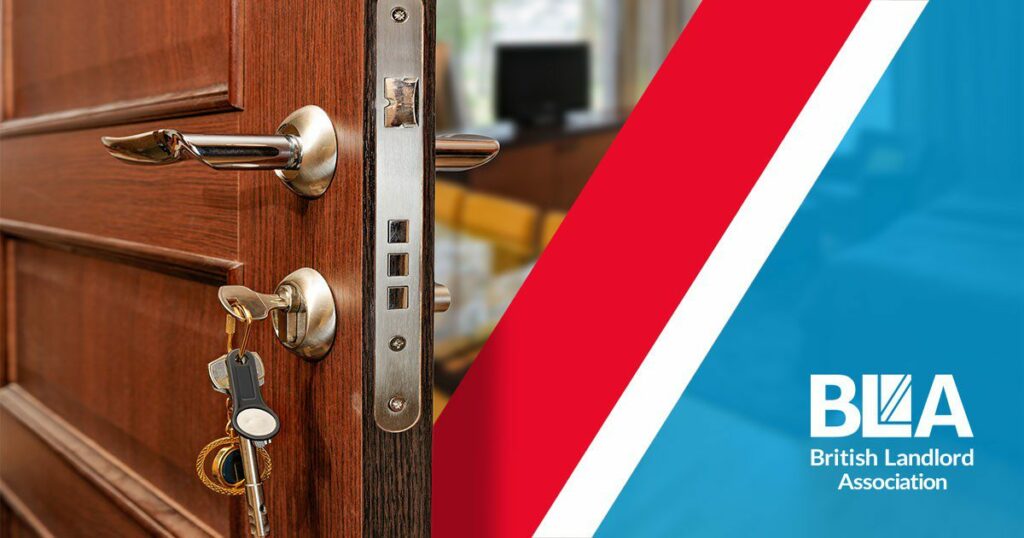Landlord FAQs
Becoming a member of the British Landlords Association (BLA) offers several benefits for landlords, property investors, and property managers:
1. Legal Support and Advice: BLA members gain access to legal support and advice on various aspects of property management, including tenancy agreements, evictions, and landlord-tenant disputes.
This can help members navigate complex legal issues and ensure compliance with housing laws and regulations.
2. Networking Opportunities: BLA membership provides opportunities for networking with other landlords and industry professionals.
Members can exchange ideas, share experiences, and collaborate on property-related projects, fostering a supportive community within the association.
3. Training and Education: BLA offers training programs, workshops, and educational resources to help members enhance their skills and knowledge in property management.
From landlord accreditation courses to seminars on property investment strategies, members can access valuable learning opportunities to stay informed and improve their practices.
4. Discounted Services and Products: BLA members may be eligible for discounts on a range of services and products related to property management, including insurance, property maintenance, and tenant referencing.
These cost-saving benefits can help members reduce their expenses and maximise their returns on investment.
5. Representation and Advocacy: BLA represents the interests of landlords and property investors at both local and national levels. As a member, landlords have a voice in shaping housing policies and regulations that affect their business interests.
BLA advocates for fair and balanced legislation that supports the rights of landlords while promoting responsible property management practices.
6. Access to Resources and Updates: BLA provides members with a wealth of resources, including industry news, regulatory updates, and market insights.
Members stay informed about changes in the rental market, legislative developments, and best practices in property management, enabling them to make informed decisions and adapt to evolving trends.
7. Dispute Resolution Services: BLA offers dispute resolution services to help members resolve conflicts with tenants or other parties amicably and efficiently.
Whether negotiating rent arrears, resolving maintenance issues, or addressing tenant complaints, BLA provides mediation and support to help members find mutually beneficial solutions.
Overall, joining the British Landlords Association offers landlords and property investors valuable support, resources, and opportunities to succeed in the property rental market while advocating for their interests and contributing to the industry’s professionalism.
What are my legal responsibilities as a landlord?
As a landlord, it’s crucial to understand your legal obligations to maintain compliance and ensure a smooth tenancy. These responsibilities typically include:
- Providing a safe and habitable living environment for tenants.
- Conducting regular maintenance and repairs to uphold property standards.
- Adhering to local rental laws and regulations regarding rent, eviction procedures, and tenant rights.
- Ensuring all necessary licenses and permits are obtained for rental properties.
Managing Tenancies Effectively
How can I find reliable tenants for my property?
Finding reliable tenants is essential for a successful rental business. Here are some tips to attract quality renters:
- Conduct thorough tenant screenings, including background checks, credit reports, and rental history.
- Advertise your rental property through reputable channels like online listing platforms and real estate agencies.
- Clearly outline your rental criteria and expectations to potential tenants during the application process.
- Consider offering incentives for desirable tenants, such as flexible lease terms or amenities.
What should I include in a rental agreement?
A comprehensive rental agreement helps protect landlords and tenants by clearly outlining the terms and conditions of the tenancy. Key elements to include in a rental agreement are:
- Rent amount, due date, and accepted payment methods.
- Lease duration and renewal options.
- Property rules and regulations, including pet policies and maintenance responsibilities.
- Security deposit amount and conditions for its return.
Handling Property Maintenance and Repairs
How should I address maintenance requests from tenants?
Promptly addressing maintenance requests is essential for tenant satisfaction and property upkeep. Here’s how to handle maintenance issues effectively:
- Establish clear communication channels for tenants to report maintenance concerns, such as a dedicated email or phone number.
- Prioritise urgent repairs that affect the safety or habitability of the property.
- Document all maintenance requests and resolutions for future reference.
- Schedule regular inspections to identify and address potential maintenance issues proactively.
Financial Considerations for Landlords
How can I maximise profitability as a landlord?
Maximising profitability requires careful financial planning and management. Consider the following strategies:
- Set competitive rental rates based on market analysis and property value.
- Minimise vacancy periods by effectively maintaining attractive rental properties and marketing.
- Keep track of income and expenses using accounting software or spreadsheets.
- Consider tax implications and deductions for landlords, such as mortgage interest and property depreciation.
Frequently Asked Questions FAQs about HMOs
Welcome to our FAQ section, which addresses common queries about houses in multiple Occupations (HMOs).
Whether you’re considering investing in HMO properties or already own one, understanding the intricacies of HMO regulations and management is crucial.
Below, we provide detailed answers to frequently asked questions to help you navigate the world of HMOs effectively.
What is an HMO?
An HMO, or House in Multiple Occupations, is a rental property shared by three or more tenants not part of the same household.
Examples include shared houses, student accommodation, and certain types of flats. HMOs typically have shared kitchens, bathrooms, or living areas.
What are the licensing requirements for HMOs?
Licensing requirements for HMOs vary depending on the location and size of the property.
Larger HMOs with five or more occupants from multiple households require mandatory licensing. However, some local authorities may have additional licensing schemes for smaller HMOs.
Landlords must ensure compliance with licensing regulations to avoid penalties and legal issues.
What are the responsibilities of an HMO landlord?
HMO landlords are responsible for ensuring the property’s safety, maintenance, and legal compliance. These responsibilities may include:
- Providing tenants safe and habitable living conditions, including maintaining essential facilities and utilities.
- Conduct regular safety checks per legal requirements, such as gas safety inspections and electrical testing.
- Adhering to fire safety regulations by installing smoke alarms, fire doors, and emergency lighting where necessary.
- Manage tenant disputes and maintain good communication to address concerns promptly.
How can I attract tenants to my HMO property?
Attracting tenants to an HMO property requires careful marketing and consideration of tenant preferences. Some strategies to attract tenants include:
- Highlighting the benefits of shared living, such as lower rental costs and communal amenities.
- Marketing to target demographics, such as students, young professionals, or individuals seeking affordable accommodation.
- Offering flexible lease terms and competitive rental rates compared to single-occupancy properties.
- Showcasing the property’s features and amenities, such as modern furnishings, proximity to amenities, and inclusive utilities.
What are the advantages of investing in HMO properties?
Investing in HMO properties can offer several advantages for landlords, including:
- Higher rental yields: HMO properties often generate higher rental income than single-occupancy properties due to multiple tenants sharing the costs.
- Diversification: HMO properties diversify a landlord’s portfolio, reducing reliance on single tenancies.
- Demand: There is a growing demand for shared accommodation, particularly among students, young professionals, and individuals seeking affordable housing options.
- Flexibility: HMO properties offer flexibility in lease terms and tenant turnover, allowing landlords to adapt to changing market conditions.
How can I ensure compliance with HMO regulations?
Ensuring compliance with HMO regulations is essential for landlords to avoid fines, legal disputes, and reputational damage. Landlords can ensure compliance by:
- Familiarising themselves with local HMO licensing requirements and regulations.
- Regularly inspecting the property to identify and address safety hazards or maintenance issues.
- Keeping thorough records of safety checks, inspections, and communication with tenants.
- Seeking advice from legal and property management professionals specialising in HMOs.
FAQ’s about Tenant Credit Checks
Our FAQ section addresses common queries about tenant credit checks.
Conducting thorough credit checks is essential for landlords to assess the financial reliability of potential tenants and mitigate the risk of rent defaults or property damage.
Below, we provide detailed answers to frequently asked questions to help landlords effectively manage tenant credit checks.
What is a tenant credit check?
A tenant credit check, also known as a rental credit check or tenant screening, is a process landlords use to assess a prospective tenant’s creditworthiness and financial history.
It involves obtaining a credit report from a credit bureau or screening agency to review the tenant’s credit score, payment history, outstanding debts, and other relevant financial information.
Why are tenant credit checks important for landlords?
Tenant credit checks are essential for landlords for several reasons:
- Risk assessment: Credit checks help landlords evaluate potential tenants’ financial stability and reliability, reducing the risk of rent defaults or property damage.
- Legal compliance: Conducting credit checks allows landlords to comply with fair housing and anti-discrimination laws by applying consistent screening criteria to all applicants.
- Property protection: Identifying tenants with a history of financial irresponsibility or past evictions helps landlords safeguard their rental properties and minimise potential losses.
- Tenant selection: Credit checks provide valuable insights into a tenant’s ability to pay rent on time and fulfil lease obligations, aiding landlords in selecting qualified tenants for their properties.
What information is included in a tenant credit report?
A tenant credit report typically includes the following information:
- Credit score: A numerical representation of the tenant’s creditworthiness based on factors such as payment history, outstanding debts, credit utilisation, and length of credit history.
- Payment history: Details of the tenant’s past and current credit accounts, including payment dates, amounts owed, and any late or missed payments.
- Credit inquiries: Records of inquiries made by landlords, lenders, or other entities accessing the tenant’s credit report.
- Public records include information about bankruptcies, foreclosures, liens, and judgments that may impact the tenant’s creditworthiness.
- Personal information: The tenant’s name, address, social security number, and other identifying information.
How can landlords obtain tenant credit reports?
Landlords can obtain tenant credit reports from credit bureaus or screening agencies specialising in tenant screening services.
These agencies typically require authorisation from the tenant and may charge a fee for accessing the credit report.
Landlords should ensure compliance with applicable laws and regulations governing tenant screening and privacy rights.
Are there any legal considerations when conducting tenant credit checks?
Yes, landlords must comply with fair housing and consumer protection laws when conducting tenant credit checks. Key legal considerations include:
- Written consent: Landlords must obtain written authorisation from the tenant before accessing their credit report.
- Fair housing compliance: Landlords must apply consistent screening criteria to all applicants and avoid discriminatory practices based on protected characteristics such as race, religion, gender, or familial status.
- Privacy protection: Landlords must handle tenant credit reports and personal information by applicable privacy laws and regulations, such as the Fair Credit Reporting Act (FCRA).
FAQ’s about EICR (Electrical Installation Condition Report)
Welcome to our FAQ section addressing common queries about EICRs (Electrical Installation Condition Reports).
EICRs are essential documents that assess the safety and condition of electrical installations in properties. Whether you’re a landlord, homeowner, or tenant, understanding EICRs and their importance is crucial.
Below, we provide detailed answers to frequently asked questions to help you navigate the world of EICRs effectively.
What is an EICR?
An EICR, or Electrical Installation Condition Report, is a detailed inspection and assessment of a property’s electrical installations.
A qualified electrician conducts it to evaluate the safety, condition, and compliance of the electrical systems with current regulations and standards.
Why are EICRs important?
EICRs are important for several reasons:
- Safety: EICRs help identify potential electrical hazards and defects that could pose a fire risk, electric shock, or other safety hazards.
- Compliance: EICRs ensure that electrical installations meet the requirements of current regulations and standards, helping landlords and homeowners comply with legal obligations.
- Risk management: By identifying and rectifying electrical faults early, EICRs help reduce the risk of electrical accidents and property damage.
- Peace of mind: EICRs provide peace to landlords, homeowners, and tenants, knowing that their electrical installations are safe and compliant.
Who needs an EICR?
EICRs are recommended for various types of properties and situations, including:
- Rental properties: Landlords are legally required to ensure that electrical installations in rented properties are safe and regularly inspected, typically every five years or at the change of tenancy.
- Homeowners: Homeowners may choose to have an EICR conducted to ensure the safety and condition of their electrical systems, especially before selling or letting out their property.
- Commercial properties: Businesses and commercial property owners may require EICRs to comply with health and safety regulations and insurance requirements.
What does an EICR inspection involve?
During an EICR inspection, a qualified electrician will:
- Visually inspect: Inspect the condition of electrical installations, including switches, sockets, light fittings, and consumer units.
- Perform tests: Conduct electrical tests to assess the integrity and safety of wiring, circuits, and protective devices.
- Identify defects: Identify any defects, faults, or non-compliance with regulations and standards.
- Provide recommendations: Recommend remedial work or improvements to ensure electrical safety and compliance.
How often should EICRs be conducted?
The frequency of EICR inspections depends on the type of property and its intended use:
- Rental properties: EICRs for rented properties should be conducted at least every 5 years or at the change of tenancy, whichever comes first.
- Homeowners: Homeowners may choose to have periodic EICRs conducted every 5 to 10 years, depending on the age and condition of the property.
- Commercial properties: Depending on industry regulations and insurance requirements, EICRs for commercial properties may be required more frequently.
What happens if an EICR identifies faults or defects?
If an EICR identifies faults, defects, or non-compliance issues, the electrician will recommend remedial work or improvements.
Addressing any issues promptly is essential to ensuring the safety and compliance of the electrical installations. Landlords may be legally obligated to make necessary repairs or upgrades to meet regulatory requirements.
FAQs about Rent Repayment Orders
Welcome to our FAQ section addressing common queries about Rent Repayment Orders (RROs). Rent Repayment Orders are a legal mechanism used to recover unlawfully charged rent from landlords.
Whether you’re a tenant, landlord, or property manager, understanding RROs and their implications is crucial.
Below, we provide detailed answers to frequently asked questions to help you navigate the world of Rent Repayment Orders effectively.
What is a Rent Repayment Order (RRO)?
A Rent Repayment Order (RRO) is a legal order issued by a tribunal or court that requires a landlord to repay rent unlawfully charged to tenants.
RROs are typically issued in cases where landlords have breached housing laws or regulations, such as failing to obtain the necessary licenses or providing substandard living conditions.
When can a Rent Repayment Order be issued?
A Rent Repayment Order can be issued in various situations, including:
- Failure to obtain a license: Landlords operating licensable properties without the required licenses may be subject to RROs.
- Housing law breaches: Landlords who fail to comply with housing laws and regulations, such as providing unsafe living conditions or harassing tenants, may be liable for RROs.
- Unlawful charges: Landlords who unlawfully charge tenants for amenities or services that should be included in the rent, such as maintenance or utilities, may face RROs.
Who can apply for a Rent Repayment Order?
Tenants, local authorities, or designated enforcement agencies can apply for Rent Repayment Orders.
Tenants may apply directly to the First-tier Tribunal (Property Chamber) or seek assistance from local authorities or housing advocacy groups.
What is the process for obtaining a Rent Repayment Order?
The process for obtaining a Rent Repayment Order typically involves the following steps:
- Application: The applicant submits an application to the First-tier Tribunal (Property Chamber) detailing the grounds for the RRO, including evidence of the landlord’s breach of housing laws or regulations.
- Evidence gathering: The tribunal reviews the application and requests evidence from both parties, including documentation, witness statements, and inspection reports.
- Hearing: If necessary, a hearing is held where both parties present their case, and witnesses may be called to provide testimony.
- Decision: The Tribunal considers the evidence presented and decides whether to issue an RRO against the landlord. If granted, the RRO specifies the amount of rent to be repaid and the timeframe for repayment.
What happens if a Rent Repayment Order is issued against a landlord?
If a Rent Repayment Order is issued against a landlord, they are required to repay the unlawfully charged rent to the affected tenants within the specified timeframe.
Failure to comply with the RRO may result in further legal action, penalties, or enforcement measures by the tribunal or local authorities.
Can landlords appeal against Rent Repayment Orders?
Yes, landlords have the right to appeal against Rent Repayment Orders if they believe the decision is incorrect or unjust.
Appeals are typically made to the Upper Tribunal (Administrative Appeals Chamber) on specified grounds, such as errors in law or procedural irregularities.
Frequently Asked Questions (FAQs) about the Eviction Process in England
Welcome to our FAQ section addressing common queries about the eviction process in England. Evicting a tenant can be a complex legal process with specific requirements and procedures.
Understanding the eviction process is essential whether you’re a landlord, tenant, or property manager. Below, we provide detailed answers to frequently asked questions to help you navigate the eviction process effectively.
What is the eviction process in England?
The eviction process in England involves legal steps a landlord takes to regain possession of a rented property from a tenant.
The process typically begins with serving a notice to the tenant and may culminate in court proceedings if the tenant does not vacate the property voluntarily.
When can a landlord evict a tenant in England?
A landlord can evict a tenant in England for various reasons, including:
- Non-payment of rent: If the tenant fails to pay rent as agreed in the tenancy agreement.
- Breach of tenancy: If the tenant breaches the terms of the tenancy agreement, such as causing damage to the property or engaging in antisocial behaviour.
- End of tenancy: If the fixed term of the tenancy has expired, and the landlord wishes to regain possession of the property.
What are the different types of eviction notices in England?
There are several types of eviction notices that a landlord may serve on a tenant, including:
- Section 21 notice: A no-fault eviction notice ends an assured shorthold tenancy (AST) after the fixed term has expired or during a periodic tenancy.
- Section 8 notice: This is a fault-based eviction notice used when the tenant has breached the terms of the tenancy agreement, such as non-payment of rent or antisocial behaviour.
- Notice to Quit: A notice used in periodic tenancies or where no written agreement exists, terminating the tenancy and requiring the tenant to vacate the property.
What is the eviction process for assured shorthold tenancies (ASTs) in England?
For assured shorthold tenancies (ASTs), the eviction process typically involves the following steps:
- Serve a Section 21 notice: The landlord serves a Section 21 notice on the tenant, providing at least two months’ notice to vacate the property.
- Possession proceedings: If the tenant does not vacate the property by the end of the notice period, the landlord can apply to the court for possession under accelerated possession proceedings.
- Court hearing: The court considers the landlord’s application and may issue a possession order if the requirements are met.
- Bailiff eviction: If the tenant still refuses to leave the property after the possession order is granted, the landlord can apply for a warrant of possession and instruct bailiffs to evict the tenant.
How long does the eviction process take in England?
The eviction process timeline in England can vary depending on factors such as the type of tenancy, grounds for eviction, and court proceedings.
In general, the process can take several weeks to several months, from serving the initial notice to obtaining a possession order and executing the eviction.
Can a tenant challenge an eviction in England?
Yes, tenants can challenge evictions in England by responding to eviction notices and attending court hearings to present their case.
Tenants may have grounds to challenge eviction notices, such as incorrect notice periods, failure to protect the deposit, or retaliatory eviction.
Where can I find additional resources and support for landlords?
Continuing education and access to resources are vital for landlords to stay informed and successful in the ever-evolving rental market. Here are some valuable resources to consider:
- Local Landlord Associations: Joining a local landlord association provides networking opportunities, educational workshops, and access to industry experts.
- Online Forums and Communities: Engage with other landlords and industry professionals through online forums and social media groups to share experiences and seek advice.
- Legal and Financial Advisors: Consult with legal and financial advisors specialising in real estate to stay updated on regulatory changes and optimise financial strategies.
- Professional Development Courses: Enrol in professional development courses or workshops tailored to landlords and property managers to enhance skills and knowledge.
- Government Agencies: Utilise resources and guidance provided by government agencies responsible for housing and rental regulations, such as housing departments or landlord-tenant associations.
Here are some useful links related to the eviction process in England:
- Gov. uk – Evicting tenants (England and Wales)
- Shelter – Eviction and repossession
- Citizens Advice – Evicting tenants
- Landlord Advice UK – Eviction process
- The Property Redress Scheme – Eviction guidance
These links provide valuable information and resources for landlords, tenants, and property managers involved in the eviction process in England.
It’s essential to consult reliable sources and seek professional advice when dealing with eviction-related matters.
The British Landlords Association is a national landlords association for UK landlords. It is one of the largest landlord associations in the UK. Join us now for £79.95!
Our top read blogs:
MPs call to uplift housing benefit payments
Disclaimer:
This post is for general use only and is not intended to offer legal, tax, or investment advice; it may be out of date, incorrect, or maybe a guest post. You are required to seek legal advice from a solicitor before acting on anything written hereinabove.





